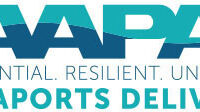In 2023, Congress will Remain Focused on Supporting American Ports

With the start of the 118th Congress, the work of our nation’s ports remains more crucial than ever. We continue recovering from the global supply chain crunch during the height of the COVID-19 pandemic, which saw our West Coast ports overwhelmed with foreign imports, largely due to a whipsaw in demand for consumer goods from the Asia-Pacific region.
In July 2022, President Biden signed my bipartisan Ocean Shipping Reform Act into law, marking the first major overhaul of our nation’s ocean shipping regulations since 1998. As the House author and a senior Democratic member of the Subcommittee on Coast Guard and Maritime Transportation, I will continue working in Congress to see the 2022 law implemented fully. The Federal Maritime Commission must be an effective regulator supporting American consumers and small to medium-sized businesses, particularly American exporters whose access to valuable foreign markets is hard-won following decades of methodical work forging business, international relationships, and taxpayer investment by the United States Government.
The pandemic and ensuing global supply chain crunch exposed serious flaws within the ocean shipping industry and our maritime transportation system. Returning to business as normal before the pandemic is simply not going to cut it. This change will require a whole-of-government approach and sustained investment in our nation’s ports and multimodal transportation system. The Bipartisan Infrastructure Law signed by President Biden in November 2021, of which I am a cosponsor, represents the single largest investment in our nation’s transportation infrastructure since the building of the Interstate Highway System during the Eisenhower Administration. In total, the 2021 law provides some $6.5 billion to upgrade our nation’s ports and harbors and an additional $27 billion for port-related infrastructure, including multimodal transportation projects for ocean freight. These public investments will make our ports more efficient and reduce traffic congestion and pollution for communities near our working waterfronts, which are often low-income and suffer disproportionally worse public health problems as a result.
At the same time, we must reduce our nation’s longstanding trade imbalance with countries like mainland China. While we make forward-looking investments to rebuild our domestic manufacturing and other critical sectors after years of outsourcing to return well-paying, skilled jobs to the United States, we must also take a hard look at how business-as-usual at our nation’s ports has exacerbated these problems.
Foreign-flagged vessels and foreign businesses’ access to the American market and its consumers is a privilege, not a right. Multinational companies looking to offload foreign-made products at our ports must provide opportunities for American exports in return. Congress must restore fairness at our ports by ensuring trade reciprocity and injecting competition in a global ocean shipping industry dominated by a handful of foreign-flagged ocean carriers, many of which are effectively foreign government-controlled enterprises.
In the coming weeks, I will be reintroducing my “American Port Access Privileges Act” to correct the structural disadvantages facing American exporters and secondary ports of call in the United States. Specifically, my bill would reward ocean carriers that serve both importers and exporters, while also codifying the current preferences for military, Jones Act, and other US-flagged vessels in place at many major American ports. This new preferential berthing will move vessels with significant American cargo export bookings to the front of the queue for unloading and loading. It will similarly incentivize ocean carriers to make second-leg voyages to ports like the Port of Oakland, which is critical for California’s agricultural exports. Any port authority seeking federal funding would be required to accept these berthing preferences.
Lastly, Congressman Dusty Johnson (R-SD) and I are planning follow-up legislation to our Ocean Shipping Reform Act of 2022 (Public Law 117-146). As always, we hope to work with AAPA and the California Association of Port Authorities on this forthcoming legislation. The bipartisan Congressional interest in the ongoings at our nation’s ports is clearly here to stay.



